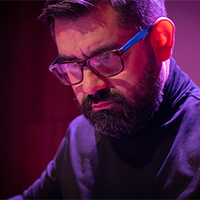Apply to ACCESS courses for PhD students!
Below you can find information about our PhD student course for 2025.
Arts, Sustainability and Open Science: Framing your research project within Cultural Sustainability
Course description:
This seminar gives an orientation about methodological and open science practices for arts-based projects, as related to the fourth pillar of sustainable development: Cultural Sustainability. Following Borgdorff’s categorization on the relations between artistic practice and research, the scope of the projects here considered include research on, for and in the arts.
Cultural Sustainability refers not only to the protection and support of cultural heritage but also to the ability to create cultural products with a sense of identity, and, more importantly, to offer all citizens the opportunity to actively participate in arts practice – to create their own culture. Artists, according to Hawkes (2001), “may have an important role as facilitators in liberating the creativity of the community”. We claim that the role of the Artist-Researcher can indeed play such a role by addressing Open Science practices, communicating data and processes to community stakeholders through models of participatory research.
Alongside a discussion of individual projects, the aim of this joint course is to provide critical accompaniment and reflection on the methods useful for data gathering, artistic experimentation and knowledge dissemination as process (not as result or product), approaching the paradigm-shift from Open Access to Open Science, in particular relation to the student’s own research projects.
Course period:
11 weeks - April-June 2025
Course location:
Online
Entry Requirements:
To be enrolled in a PhD program researching any aspect of the arts or to be a Post Doc Fellow with an artistic research agenda at an ACCESS university. Each student should demonstrate English proficiency in spoken or written word.
Credits:
The course will be worth 5 ECTS credits.
Information about the application process:
Registration for the course will open in late 2024.
Meet the course convenors:
Michael Edgerton, Lund University
Michael Edward Edgerton is an active composer with performances around the world. His compositions have received international prizes and recognition. Edgerton is at the forefront of vocal exploration and has influenced an entire generation through his book, The 21st Century Voice (Rowman & Littlefield, 2nd edition, 2015), which proposes methods for investigating singing within the framework of voice science.
Diego Castro, Pontificia Universidad Católica de Chile
Diego Castro is a Chilean music performer and researcher mostly devoted to new music and Artistic Research. Both his artistic and academic work has been internationally disseminated through performing activity (including recording in renowned labels of experimental and new music) and several publications on journals and edited books on new music and Artistic Research. Diego is a pioneer of new/experimental music practices and Artistic Research in Chile and Latin America.



